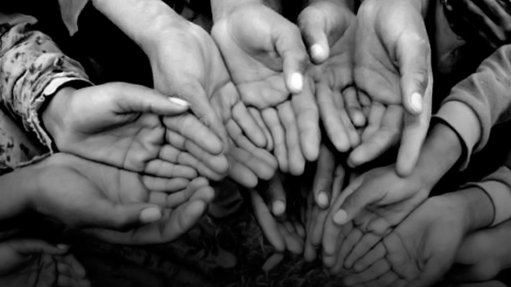
Human Rights Watch’s World Report 2018 has found that the South African government’s record on human rights and respect for the rule of law was poor, despite a robust and independent judiciary.
"Corruption, poverty, including high unemployment and crime, significantly restricted South Africans' enjoyment of their rights," its preamble to SA findings read.
Women's rights
The annual review of human rights practices around the globe did not paint a pretty picture of the government’s dealings with issues such as disability rights, foreign policy, accountability for xenophobic attacks on foreign nationals, women’s rights and sexual orientation and gender equality.
The report condensed rights issues in more than 90 countries and territories, dated between late 2016 and November 2017.
With one in five women having experienced physical violence, and three women killed by their partners daily, the report pointed out that the government was yet to introduce a national strategy to combat women abuse.
The scourge remained widespread and underreported, the report found.
Xenophobia
Xenophobic violence on foreign nationals has resulted in virtually no convictions, the report read, and authorities "appeared reluctant to even publicly acknowledge xenophobia and take decisive action to combat it, including ensuring proper police investigations".
The government was yet to provide a mechanism for justice and accountability for xenophobic crimes and has not completed its draft national action plan to combat racism, racial discrimination, xenophobia and related intolerance, it was found.
Disability and education
An estimated 500 000 children with disabilities do not have access to education, while more than 11 000 are on waiting lists for placement, the reported stated, citing information sourced from the SA Human Rights Commission.
It also found that disabled children did not have equal access to education and faced discrimination and barriers when accessing schools. Unlike public schools, where education is free, special schools required fees to be paid.
The government was yet to adopt legislation that guarantees inclusive education, with the majority of its limited budget being allocated to special schools rather than inclusivity.
The report also made special mention of the Life Esidimeni tragedy, saying the Gauteng government had a responsibility to ensure the hospices that patients were transferred to had adequate resources to support them.
Zimbabwe, SADC and ICC
SA, which in 2017 took over the Southern African Development Community (SADC) for a year, missed key opportunities to place human rights at the centre of its foreign policy, Human Rights Watch said.
"[It] has refrained from criticising Zimbabwe’s poor human rights situation," it found.
While the African National Congress called for Swaziland to be referred to the SADC for abuse of human rights and suppression of dissent in July, the government did not use the SADC chair to press for human rights respect in the country, the report said.
It also found that the ICC debacle in which government failed in its duty to arrest Sudan president Omar al-Bashir also dented SA’s "international image as a champion of human rights and international justice".